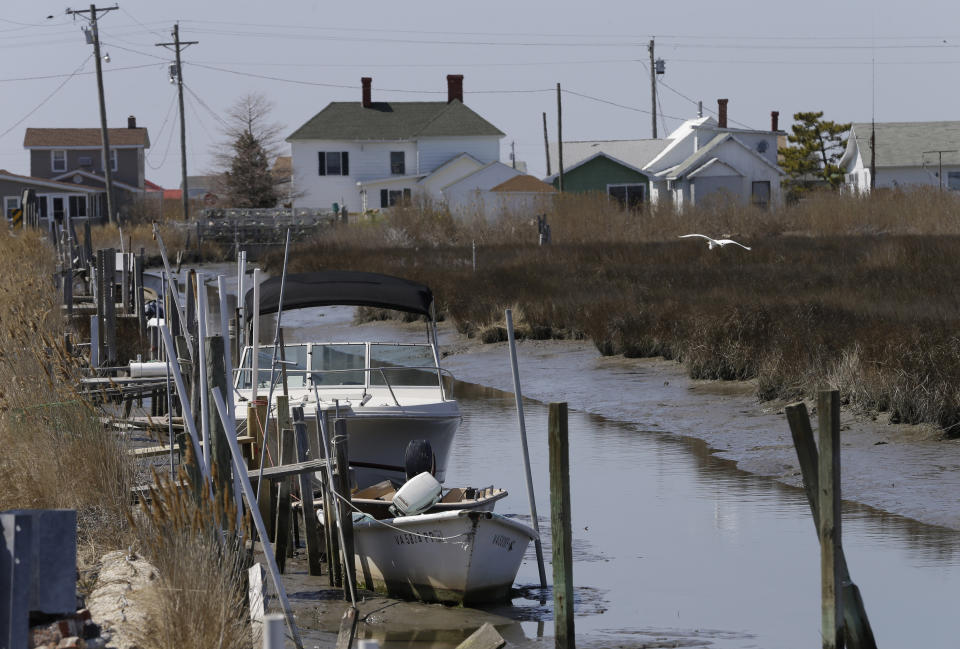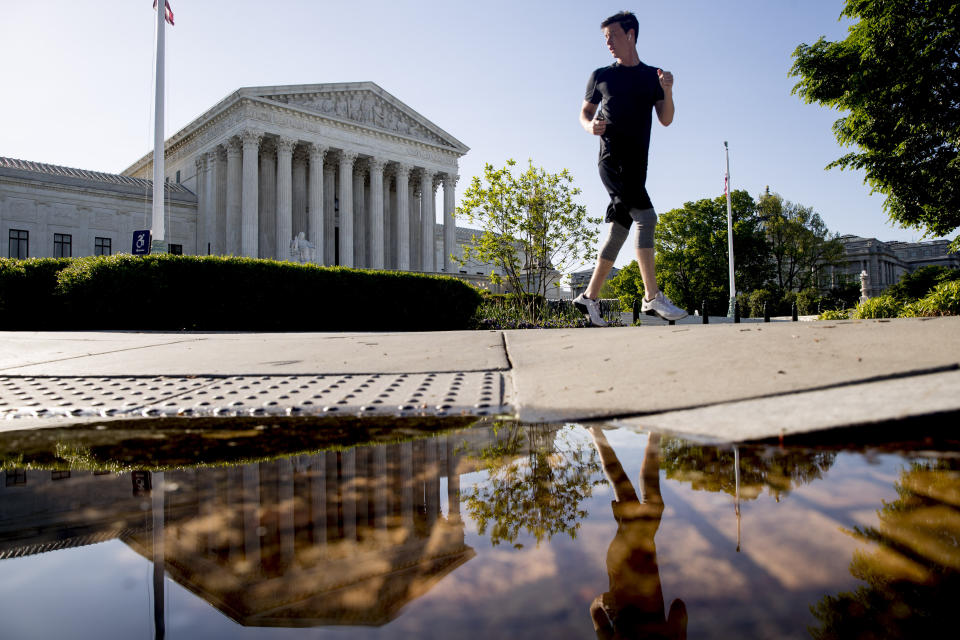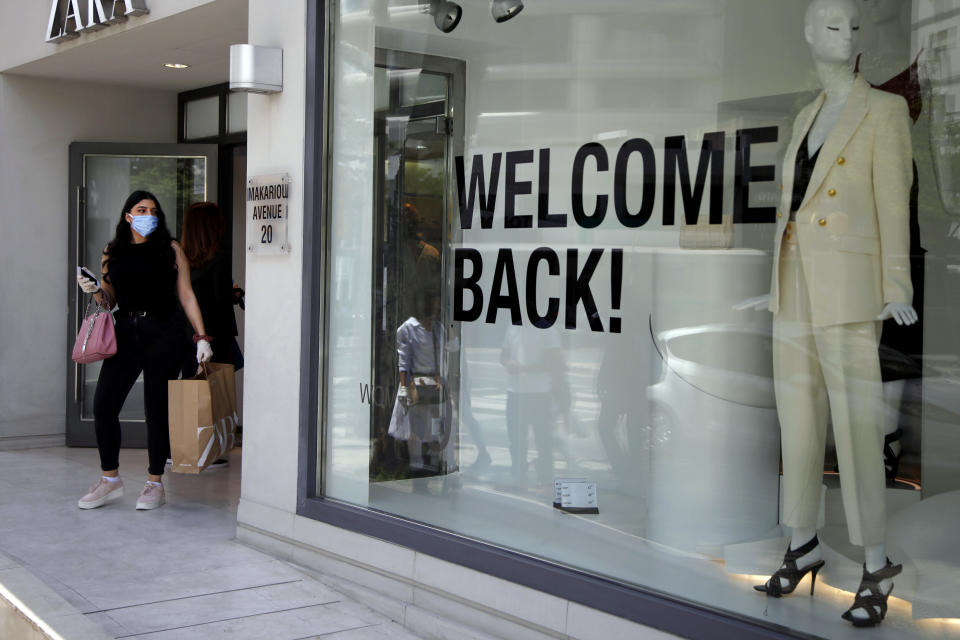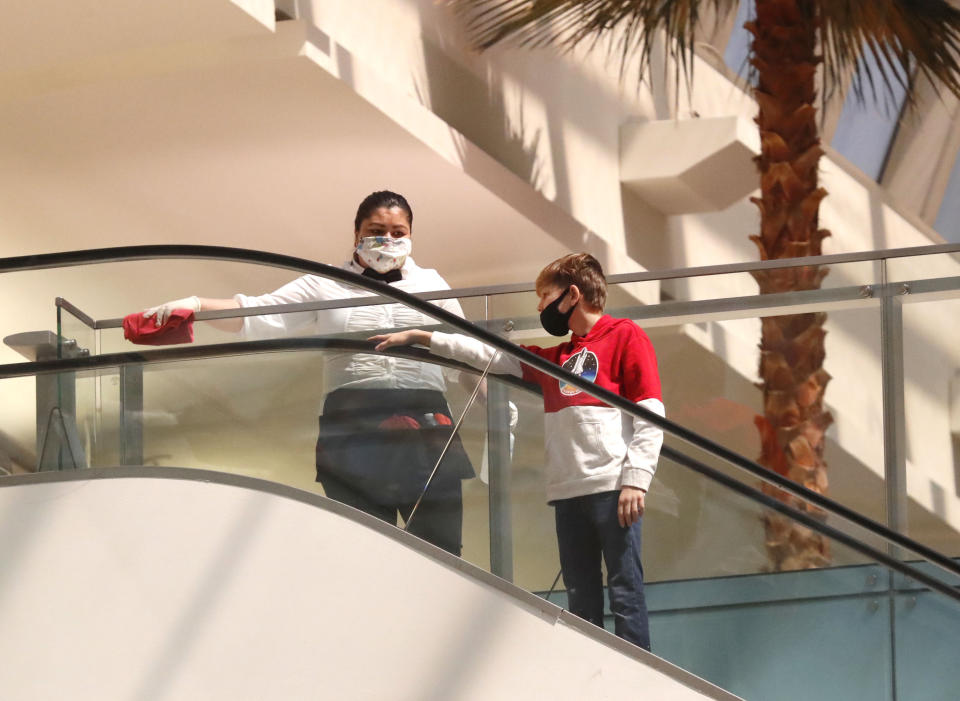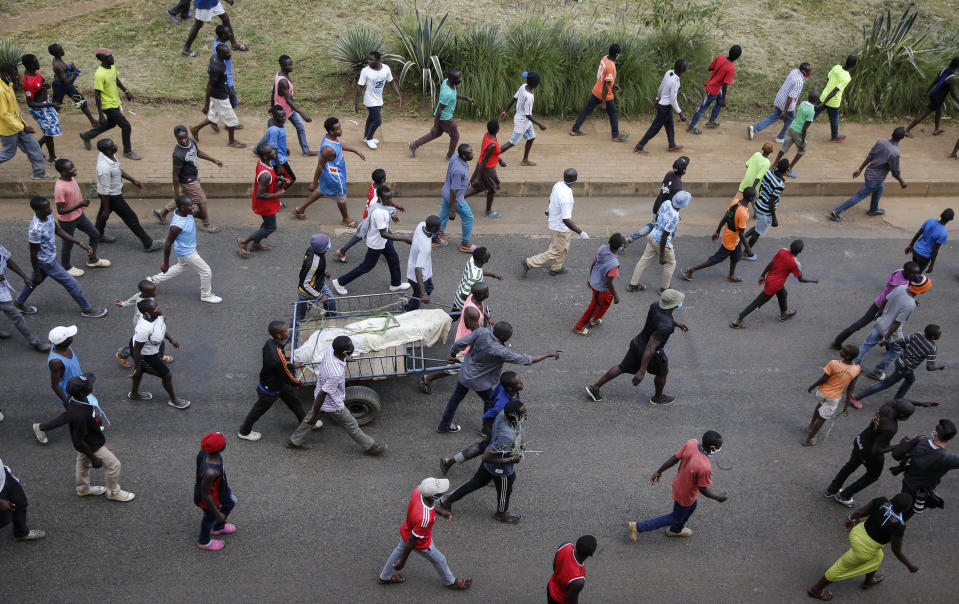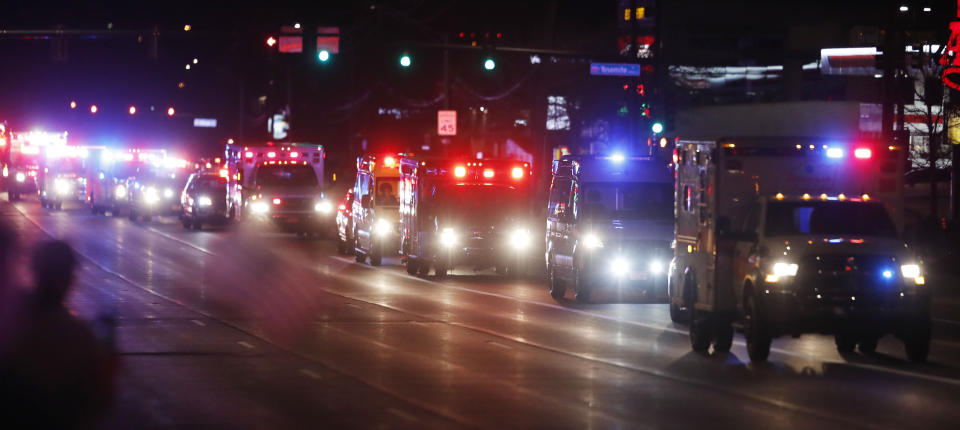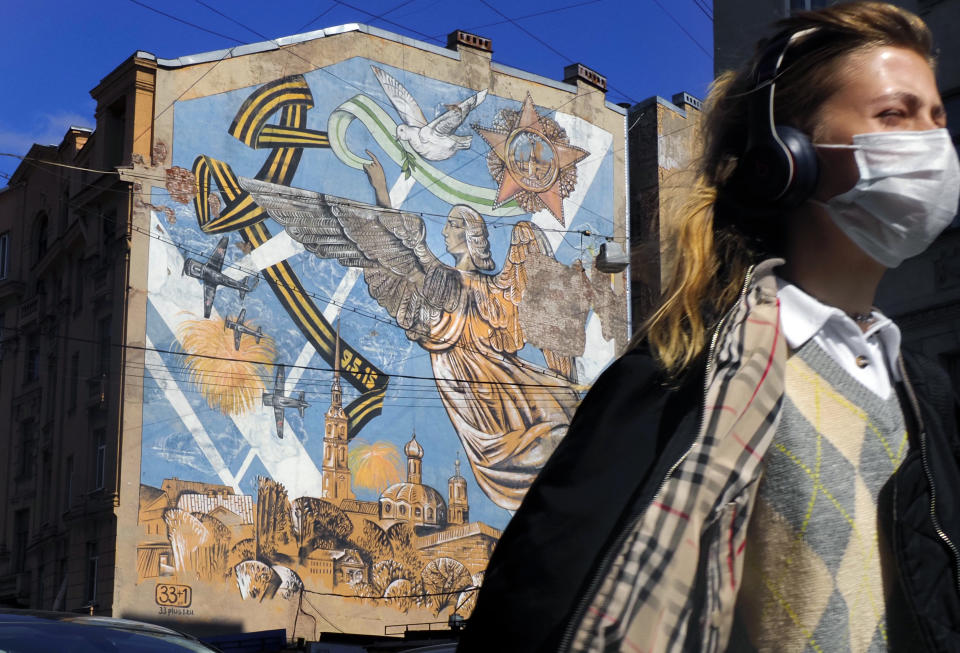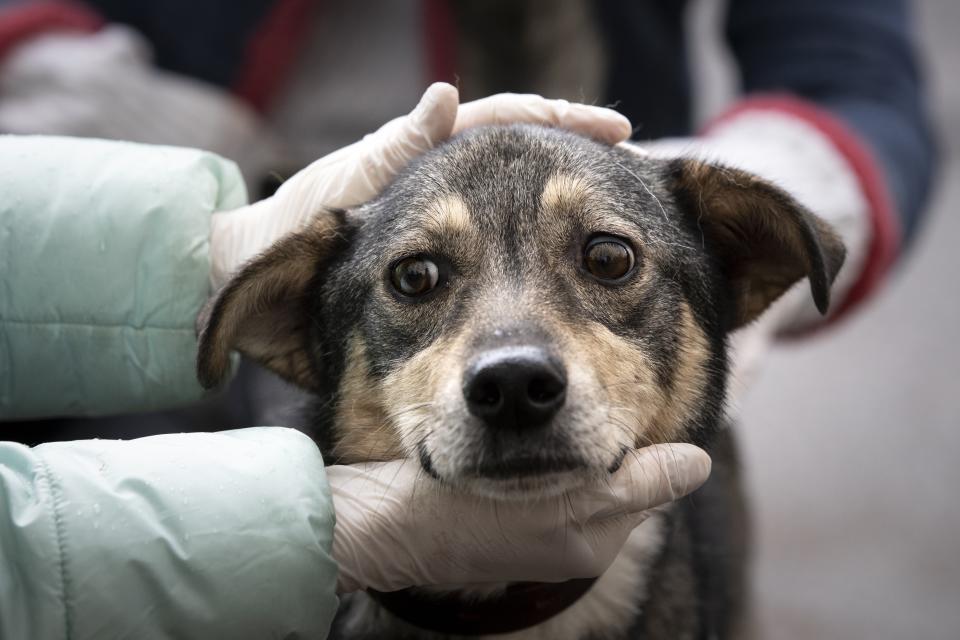What you need to know today about the virus outbreak
Millions of people were allowed to return to work in Italy on Monday as Europe’s longest coronavirus lockdown started to ease, while the U.S. took halting steps to lift some of its own restrictions even as tens of thousands of new cases are reported every day.
In Washington, the U.S. Supreme Court held hearings by phone for the first time, and the Senate convened for the first time since March.
Here are some of AP’s top stories Monday on the world’s coronavirus pandemic. Follow APNews.com/VirusOutbreak for updates through the day and APNews.com/UnderstandingtheOutbreak for stories explaining some of its complexities.
WHAT’S HAPPENING TODAY:
— U.S. officials believe China covered up the extent of the coronavirus outbreak to stock up on medical supplies needed to respond to it. Chinese leaders “intentionally concealed the severity” of the pandemic from the world in early January, according to a four-page Department of Homeland Security intelligence report obtained by The Associated Press.
— California Gov. Gavin Newsom, one of the first governors to impose a statewide stay-home order, announced that some businesses can reopen as early as Friday, with restrictions.
— “The case is submitted.” With those words, Chief Justice John Roberts wrapped up the first U.S. Supreme Court argument conducted by telephone and where audio was available live to the public. The court’s plaza was deserted as it has been since the building was closed to the public in mid-March.
— World leaders, organizations and banks pledged 7.4 billion euros ($8 billion) for research to find a vaccine against the new coronavirus but warned that it is just the start of an effort that must be sustained over time to beat the disease. The United States was notably absent from the video-conference event hosted by the European Union.
— A woman, her adult son and husband have been charged in the fatal shooting of a security guard in Michigan who refused to let her daughter enter a store because she wasn’t wearing a face mask.
___
WHAT YOU NEED TO KNOW:
For most people, the coronavirus causes mild or moderate symptoms, such as fever and cough that clear up in two to three weeks. For some, especially older adults and people with existing health problems, it can cause more severe illness, including pneumonia and death. The vast majority of people recover.
Here are the symptoms of the virus compared with the common flu.
One of the best ways to prevent spread of the virus is washing your hands with soap and water. The U.S. Centers for Disease Control and Prevention recommends first washing with warm or cold water and then lathering soap for 20 seconds to get it on the backs of hands, between fingers and under fingernails before rinsing off.
You should wash your phone, too. Here’s how.
TRACKING THE VIRUS: Drill down and zoom in at the individual county level, and you can access numbers that will show you the situation where you are, and where loved ones or people you’re worried about live.
___
ONE NUMBER:
— 11: As in Chapter 11 bankruptcy protection, which struggling fashion brand J.Crew has filed for, becoming the first major retailer to do so since the coronavirus pandemic forced most stores across the United States to close their doors. More retail bankruptcies are expected in coming weeks.
___
IN OTHER NEWS:
— PANDEMIC SONGS: Musicians have been inspired to write and record songs that reflect the mood of a world dramatically altered by the new coronavirus.
— PARAMEDIC HONORED: Fire trucks and other emergency vehicles drove in procession from the Denver airport to honor a retired Colorado paramedic who died after volunteering to help combat the pandemic in New York City.
___
Follow AP coverage of the virus outbreak at https://apnews.com/VirusOutbreak and https://apnews.com/UnderstandingtheOutbreak
